#Honor Gillies
Explore tagged Tumblr posts
Text
The Hunger Games: The Ballad of Songbirds & Snakes (2023) Review
We follow a young Coriolanus Snow during the 10th Hunger Games when he has to mentor the female District 12 tribute, Lucy Gray Baird who he develops feelings for and risks everything. ⭐️⭐️⭐️ Continue reading The Hunger Games: The Ballad of Songbirds & Snakes (2023) Review

View On WordPress
#2023#Action#Adventure#Amazon Prime UK#Amelie Hoeferle#Ashley Liao#Athena Strates#Ayo Adegun#Burn Gorman#Carl Spencer#Clemens Schick#Dexter Sol Ansell#Drama#Fionnula Flanagan#Florian Burgkart#Francis Lawrence#George Somner#Honor Gillies#Hunter Schafer#Isobel Jesper Jones#Jason Schwarzman#Joshua Kantara#Kaitlyn Akinpelumi#Michael Arndt#Michael Lesslie#Rachel Zegler#Rapahel Zari#Review#Rosa Gotzler#Scott Folan
0 notes
Text










#fallon carrington in the flesh once again 🌹#i miss her face your honor <3#elizabeth gillies#liz gillies#mygifs#myedits#dailywomansource#flawlessbeautyqueens#thequeensofbeauty#femalesource#wonderfulwomendaily#dailywomen#femaledaily#brunettesource#womensource#femalestunning#fcsources#fallon carrington
543 notes
·
View notes
Text
I appreciate that filmmakers repeatedly find ways to attach Peter Lorre's characters very closely to characters that are noticably taller and/or ganglier than he is. Whether they have romantic tension or just seem like they're great friends/colleagues, there's a sort of bonded pair [or trio] vibe they give off that I live for.







#there are more than this i'm sure but these are the ones i remembered#mrs. bennett takes exception to the bonded pair rule but she gets honorable mention cuz she was a powerhouse#shit now i gotta tag everyone#herman einstein#jonathan brewster#arsenic and old lace#the nesting doll polycule#karl fenninger#prince saliano#judge mainwaring#you'll find out (1940)#lucky#mr. marko#black angel (1946)#nurse agnes#abbott#the man who knew too much (1934)#willie#kismet#my favorite brunette#catherine bennett#felix gillie#waldo trumbull#comedy of terrors#peter lorre#phew#jonathan is truly gigantic holy cow
49 notes
·
View notes
Text
we loved once and true (arthur morgan/mary gillis)

summary: It begins on the ranch owned by Mr. Gillis, where the eighteen-year-old Arthur Morgan is hired as a ranch hand. He is caught off guard when he meets the sixteen-year-old Mary Gillis and they hit it off despite their differences. Travel through the years as Arthur and Mary's relationship begins to grow, going through the highest of highs and the lowest of lows, learning time and time again that the world they live in isn't as romantic as it may seem.
a/n: hey y'all!! so this one is a lot more in depth and ambitious than my usual stuff, because i randomly became hyperfixated on arthur and mary's relationship throughout the years. i liked that the game provided us with some good insight into their relationship but i wanted to go through and create a timeline of events and add details like when and how they met, and also elaborating on arthur's relationship with eliza. while a lot of this most likely isn't cannon, and i did take some creative liberties, i tried to stay as close to the game's timeline and kept everything within the bounds of what the game does tell us. ***disclaimer: towards the end where it actually starts tying in with with the game (1899 and 1907), i used the letters and some of the dialogue provided in the game and built off of it, so all credits go to Rockstar of course.***
**the links to each chapter are available on my masterlist**
see below for an excerpt from chapter 1 (1881):
---------------------
July 12th, 1881
One day, while Arthur was repairing a fence that had been blown over in a storm the night before, he looked up to wipe the sweat from his brow and noticed someone sitting on the back steps of the large ranch house.
It was a girl. Arthur squinted in the bright sun, adjusting his leather hat on his head. She was wearing a fancy-looking dress and had a book in her hand.
She was awfully pretty, too.
When Arthur was done with his work, he put his tools away and made his way over to the girl on the steps. She looked up and noticed him approaching, but quickly averted her eyes and looked down at her book.
When he reached her, he cleared his throat. “Miss… Have we met?” He asked casually, taking off his hat with one hand to nod to her. She was young… perhaps Mr. Gillis’s daughter?
She looked up from her book as if pretending that she hadn’t noticed him from afar, but he knew she had. Her eyes were a deep shade of brown, her skin smooth and clean-looking. She had a beauty mark on her cheek that moved when she smiled politely at him.
“I’m Mary.” She closed her book. “Mr. Gillis’s daughter.”
Arthur placed his hat back on his head and smiled before she continued.
“You’re the new ranch hand?”
Arthur wanted to laugh at her question because it seemed obvious that he was. Had she not seen him fixing the fence just before? “Arthur. And, yes.”
“God, I hope my father hasn’t been driving you crazy.” She looked down, shaking her head.
Arthur shifted awkwardly, placing his hands on his belt. “No… not yet.” He chuckled, lying.
“Good.” The girl looked up at him again, her expression calm.
Arthur could feel the sun beading down on his back, and his head pound with exhaustion. “Say, could I bother you for a glass of water?”
Mary’s eyes widened, and she practically jumped up, putting her book down on the step. “Of course! You must be parched.”
Arthur smiled, amused by her enthusiasm. “Yeah. If it’s not too much trouble–”
“It’s not.” She began to climb the steps, “I’ll be right back.”
Before he could even thank her, she darted inside, the door closing behind her. Arthur chuckled to himself, pacing slightly on the stone path. She liked how she didn't look at him like some degenerate like everyone else did. She talked to him with honesty, no secret meanings behind kind words.
He looked down at her book that was sitting on the step. He was thankful Bessie and Hosea had taught him how to read because he was able to make out the title: Pride and Prejudice.
He had never heard of it. Arthur picked up the book, flipping it over in his hand. The cover was rather ornate, dark navy with gold writing and complex designs along the spine. As he opened the cover, he realized that there was some writing inside. Notes, it looked like. Before he could read any of the neat cursive handwriting, the door swung open, and the young woman walked out with a large glass of water.
Arthur quickly closed the book, placing it back down on the step as she noticed him reading it.
“Sorry,” Arthur said. “I was just curious about what you were readin’.”
Mary smiled, approaching the edge of the step and passing the water down to him. “It’s just a silly romance.”
Arthur took a few large gulps of water as Mary sat back down, placing the book on her lap. “Do you read?” She asked.
Arthur shook his head, wiping his lip with the back of his hand. “No, not really. I’d like to… but I don’t really…”
“I can lend you some.” She stared up at him.
Arthur paused, wanting to accept her kindness, but also embarrassed that he couldn’t read books like that... yet, at least. He could read basic things, but books? That was a whole other story. He was a ranch hand, not a scholar.
When Mary saw his hesitance, she continued. “It’s no trouble.”
“I… Um–”
“Mary Gillis!” A loud, booming voice interrupted him, and Arthur turned to see Mr. Gillis coming around the side of the house. “There you are.” He looked at her, then at Arthur, and then back at her.
“Yes?” Mary answered, standing up. She clutched her book tightly to her body, and Arthur backed away.
“What are you doing?” The fat man approached them, looking Arthur up and down.
Mary stepped down the stairs, inserting herself between her father and Arthur. She was much shorter than both of them, Arthur felt his cheeks flush at the sight of her so close to him.
“I was reading. And then Arthur needed a glass of water, so I got him one.” Her voice was stern, yet quiet.
The man looked up at Arthur, his eyes angry. “Get back to work.”
Someday, he was going to either kill this man or rob him blind. “Alright.”
“Daddy, don’t be rude–”
The man suddenly grabbed her arm roughly, pulling her with him as he began to leave. Mary made eye contact with Arthur as she was dragged away, and Arthur's heart leapt in his chest.
check out the completed story here on ao3!
#red dead redemption 2#arthur morgan#arthur morgan x mary gillis#arthur morgan x eliza#rdr2 fanfic#retcon??#canon compliant#canon rewrite#angst#angst and smut#eventual smut#high honor arthur morgan#arthur morgan needs a hug#dilf arthur morgan
8 notes
·
View notes
Text
Still hyper fixated on Elijah
Read an old interview:
Don’t you think he’s the most level-headed of the Originals?
GILLIES: Which is disturbing because he’s kind of a murderer.
17 notes
·
View notes
Text
crying over the great war again. btw
#this song....#SOLDIER DOWN ON THAT ICY GROUND???#LOOKED UP AT ME WITH HONOR AND TRUTH??? BROKEN AND BLUE???#THAT WAS THE NIGHT I NEARLY LOST YOU????#I REALLY THOUGHT I LOST!? YOU!!?#shh gilly
19 notes
·
View notes
Text
Minor mistakes with tragic consequences...

#1 - Ralph Yarl, age 16, knocked on the wrong door when going to pick up his 8 year old twin brothers.
#2 - Kaylin Gillis, age 20, was riding with a friend who accidentally turned into the wrong driveway.
#3 - Payton Washington, age 18, was sitting in her car with three of her fellow Elite Cheer squad after her friend and teammate Heather Roth had mistakenly opened the door of the wrong car in a parking lot.
ALL of these Young Adults were doing these benign actions when they were tragically SHOT by three different men with guns, within the past three days. smh
#ralph yarl#kaylin gillis#payton washington#Heather Roth#Keyona#Genesis#concert band#symphonic band#honor roll#cheerleading#only in america
7 notes
·
View notes
Text
i got the slayer form but at the cost of wyll getting mad at me. not sure it’s worth that
#also lost jaheira :( can’t go back because of honor mode#isoldt: oh ok. you guys are mad at me. i should kill myself about it#gillie plays bg3
0 notes
Text

Asteroid Fay (4820) in the Natal Chart

Navigation: Masterlist✦Ask Rules✦Feedback Tips
Askbox✦Sources✦Paid Readings

The asteroid Fay (4820) gets a lot of fairy stuff when you see posts about this asteroid, but I don't see it that way. I may be tripping on this analysis, yes, but let's go. It was named after a pilot, Fay Gillis Wells,a woman. If it is hard to come by in those areas these days, imagine back then. So I see it more as the feminine authenticity, the part that was repressed from you when you were a child because it wasn't adequate, that part of you that only many years later you realize was killed because they didn't believe in it. Much like Tinkerbell when they didn't believe in her. It's a part of you that was repressed not by your fault, but by others. The fairytail that was killed when you were a girl. I di this analysis focusing more on why it was named that way and it trajectory than just thinking about what Fay means. So, in the end, I just tried to have some fun doing this post, sorry.

Fay in the Signs
The sign where Fay is reveals the flavor and tone of your feminine authenticity—the unique, often misunderstood part of yourself that might have been repressed by external expectations or societal norms. Over time, rediscovering this part of you brings empowerment, healing, and the ability to honor your authentic self in ways that were once denied.
∞ ₒ ˚ °𐐒 Aries: Your boldness, confidence, and pioneering spirit may have been stifled, perhaps through discouragement of your natural leadership or independence. Others might have seen your fiery self-expression as "too much." Rediscovery reawakens your fierce courage, rekindling a sense of personal initiative and the ability to unapologetically pursue your desires. You become a trailblazer in reclaiming what was once suppressed.
∞ ₒ ˚ °𐐒 Taurus:Your connection to sensuality, material values, and the comfort of stability might have been dismissed, especially if practicality or frugality was overly emphasized in your upbringing. This repression may have made you doubt your worth or feel disconnected from physical pleasure and abundance. Rediscovery brings a deep, grounded connection to nature, beauty, and your self-esteem, allowing you to fully embrace a life of richness and contentment.
∞ ₒ ˚ °𐐒 Gemini:Your curiosity, communication, and intellectual playfulness may have been silenced or undervalued. Perhaps others deemed your ideas frivolous or dismissed your need for learning and sharing. Rediscovery empowers your voice, sharpens your wit, and brings the confidence to express your thoughts freely. You reclaim your role as a dynamic storyteller and bridge-builder.
∞ ₒ ˚ °𐐒 Cancer:Emotional vulnerability, nurturing instincts, and your deep sensitivity might have been undervalued, leading you to suppress your innate ability to care and connect. Rediscovery allows you to embrace your emotional intelligence and honor the power of your nurturing side. You reclaim the strength that comes from authentic emotional expression and your ability to create a safe, loving space for yourself and others.
∞ ₒ ˚ °𐐒 Leo:Your creativity, self-expression, and natural magnetism may have been stifled, perhaps by others downplaying your talents or shaming your need for recognition. Rediscovery reignites your inner flame, allowing you to shine without apology. You step into the spotlight with confidence, celebrating your unique gifts and inspiring others to do the same.
∞ ₒ ˚ °𐐒 Virgo:Your practicality and perfectionism may have been emphasized at the expense of your softer, more creative side. Perhaps you were pushed to focus on being useful and efficient, leaving little room for personal exploration or emotional ease. Rediscovery brings balance, allowing you to serve others while honoring your own needs. You reclaim the grace of self-care and the joy of embracing imperfections.
∞ ₒ ˚ °𐐒 Libra:Your authenticity in relationships, harmony, and aesthetic appreciation may have been repressed, perhaps due to societal or familial pressures to conform. You might have been discouraged from asserting your individuality or desires for fear of upsetting the balance. Rediscovery empowers you to create beauty and equality in all areas of life, fostering relationships that honor both your needs and those of others.
∞ ₒ ˚ °𐐒 Scorpio:Your intensity, transformative power, and deep emotional truth may have been buried, perhaps because others found them intimidating or "too much." This repression may have left you feeling disconnected from your own depths. Rediscovery brings fearless authenticity, allowing you to dive into the shadows, heal, and emerge as a beacon of resilience and empowerment.
∞ ₒ ˚ °𐐒 Sagittarius:Your adventurous spirit, love of freedom, and thirst for knowledge may have been dismissed or restricted, leaving you feeling trapped or misunderstood. Rediscovery reignites your passion for exploration—whether through travel, philosophy, or learning. You reclaim your right to seek the truth and expand your horizons, living a life of bold authenticity.
∞ ₒ ˚ °𐐒 Capricorn:Your ambition, discipline, and authority may have been repressed, especially if others placed limitations on your aspirations or doubted your ability to succeed. Rediscovery empowers you to take ownership of your goals, aligning your sense of responsibility with your authentic purpose. You emerge as a figure of self-determined success and leadership.
∞ ₒ ˚ °𐐒 Aquarius:Your eccentricity, innovation, and visionary ideas may have been shunned, particularly if they challenged conventional norms. This repression might have left you questioning your uniqueness or feeling isolated. Rediscovery allows you to embrace your role as a trailblazer, bringing originality and progressive thought into your life and the world around you.
∞ ₒ ˚ °𐐒 Pisces:Your sensitivity, spirituality, and imaginative nature may have been dismissed as impractical or unrealistic, leaving you feeling unseen or undervalued. Rediscovery reconnects you to your intuitive gifts and the dreamlike essence of your soul. You reclaim your ability to inspire and create from a place of deep emotional and spiritual authenticity.

Fay in the Houses
The house in which Fay resides in your natal chart indicates the specific life area where your feminine authenticity may have been stifled, often due to external pressures or unmet validation during formative years. Over time, this placement illuminates the process of reclaiming your suppressed self, allowing you to thrive authentically in this domain of life.
∞ ₒ ˚ °𐐒 1st House: Repression here may have stifled your sense of self, physical presence, or how you express your individuality to the world. Perhaps you were made to feel you didn’t measure up in appearance, personality, or confidence, leaving you hesitant to assert your true identity. Rediscovery empowers you to embrace who you are unapologetically, cultivating self-confidence and owning your presence with bold authenticity.
∞ ₒ ˚ °𐐒 2nd House: Your self-worth, personal values, or relationship with material security may have been suppressed, possibly by others imposing their priorities on you or undermining your sense of value. Rediscovery helps you rebuild a strong relationship with abundance, teaching you to honor your unique talents and to trust in your inherent worth. You learn to create a stable, fulfilling life on your terms.
∞ ₒ ˚ °𐐒 3rd House: Your voice, ideas, or intellectual curiosity may have been dismissed or stifled, leaving you hesitant to speak up or explore freely. Perhaps you felt your thoughts weren’t valued or that learning was too rigidly structured. Rediscovery brings liberation, allowing you to express yourself confidently, connect meaningfully, and embrace your inner storyteller or thinker.
∞ ₒ ˚ °𐐒 4th House: Family dynamics or early home life may have restricted your emotional truth or sense of safety. You may have been discouraged from exploring your vulnerability or made to conform to familial expectations. Rediscovery allows you to nurture yourself deeply, reconnect with your roots on your own terms, and even break generational patterns to create a home and foundation that truly supports your authenticity.
∞ ₒ ˚ °𐐒 5th House: Creativity, playfulness, and romantic self-expression may have been overshadowed by pressure to be serious or productive. Perhaps your innate talents or joys were dismissed as frivolous. Rediscovery rekindles your passion for life, helping you reconnect with your inner child, celebrate your unique creativity, and find joy in authentic self-expression and love.
∞ ₒ ˚ °𐐒 6th House: Service, routines, or health-related responsibilities may have overshadowed your authentic self. Perhaps you were expected to sacrifice your individuality for the sake of duty or perfectionism. Rediscovery teaches you to balance responsibility with self-care, crafting a meaningful and sustainable lifestyle that honors your uniqueness and supports your well-being.
∞ ₒ ˚ °𐐒 7th House: In close relationships, you may have suppressed your individuality, feeling overshadowed or compelled to conform to others’ needs. Rediscovery empowers you to create partnerships that are equal and fulfilling, where your voice is valued. This placement helps you strike a balance between connection and autonomy, fostering relationships that reflect your true self.
∞ ₒ ˚ °𐐒 8th House: Deep emotional or transformative power may have been buried due to fear, shame, or external repression of your intense nature. Perhaps you were taught to hide your vulnerability, sexuality, or capacity for profound change. Rediscovery brings courage to explore your depths, embrace your shadows, and emerge with a greater sense of empowerment and authenticity.
∞ ₒ ˚ °𐐒 9th House: Your thirst for knowledge, spiritual exploration, or adventurous spirit may have been dismissed or discouraged. Others may have sought to limit your vision or impose rigid beliefs. Rediscovery reignites your passion for freedom and learning, encouraging you to embrace your personal truth and explore the world with openness and wisdom.
∞ ₒ ˚ °𐐒 10th House: Your public role, career ambitions, or sense of purpose may have been restricted, perhaps by societal expectations or self-doubt. Rediscovery aligns you with a career or legacy that reflects your true nature and aspirations. You find the courage to step into your authority and pursue a path that feels authentically meaningful and impactful.
∞ ₒ ˚ °𐐒 11th House: Your individuality within groups or your visionary ideas may have been suppressed, possibly because they challenged norms or went against the grain. Rediscovery helps you find your true community—those who support and celebrate your unique contributions—and reconnects you to your ideals and dreams for the future.
∞ ₒ ˚ °𐐒 12th House: Subconscious fears, societal expectations, or hidden pressures may have stifled your spiritual and intuitive gifts, leaving you disconnected from your inner world. Rediscovery invites you to embrace your sensitivity, delve into your dreams, and unlock the hidden wisdom within. You learn to trust your intuition and honor the depth of your soul’s journey.

Fay Aspecting Planets
Sun: Your core identity is tied to reclaiming authenticity. Challenges help you grow into self-expression.
Moon: Emotional vulnerability and healing are central. Rediscovery nurtures your emotional truth.
Mercury: Your voice and ideas reclaim confidence and clarity after past suppression.
Venus: Self-worth and relationships evolve as you rediscover your value and beauty.
Mars: Assertiveness and passion emerge as you embrace your authentic drive.
Jupiter: Personal growth and wisdom come through rediscovering your true nature.
Saturn: Early restrictions transform into strength and discipline in reclaiming authenticity.
Uranus: Rediscovery liberates you to express your unique, rebellious side.
Neptune: Creativity and spirituality guide you to reclaim your authentic essence.
Pluto: Deep transformation and empowerment are key to rediscovering your true self.
Rising: Your journey of authenticity is visible to others, shaping your public image and first impression. Challenges push you to embody your true self confidently.
Midheaven: Your career and public role reflect your journey of reclaiming authenticity. Rediscovery aligns your purpose with your truest self, inspiring others through your professional and personal legacy.
(CC) AstroJulia Some Rights Reserved

#astrojulia#astrology#astroblr#all about astrology#astro community#natal chart#astro placements#asteroid fay 4820
604 notes
·
View notes
Text
Details that I've noticed about Arthur Morgan-
-He, for the most part, despises male touch, especially if it's overly affectionate. He gets tense anytime a man hugs him and wants it to be over as quick as possible (Jamie, Mickey) and he looks visibly offended when Professor Bell touches him. He even sometimes gets annoyed when Dutch touches him on his shoulder, someone who he considers a father figure.
-On the flip side, he does not mind female touch at all. He even initiates it sometimes (Tilly, the girl at Beaver Hollow). Now one could argue that they were high stress situations, but if Tilly was a dude, he would've just set her free, make a snide remark, give her a gun, and then he'd expect her to help him with the fighting. He is completely cool with the nun giving him a hug and doesn't get offended when Mary Beth touches his hand in their therapy session.
- He seems to be pretty well read. He knows Shakespeare, with Romeo and Juliet, and Icarus. He makes other literary references. This is probably due to Dutch. Dutch is clearly very well read and cultured. However, Arthur seems more interested in practical works like guides then philosophy and stories, given that the only book he has on his tent desk is a plant guide.
- He's great at remembering faces and less so on remembering names.
- He does have an amazing propensity to remember physical features, like how he is able to create amazing portraits of the people he meets without consistent reference. It's incredible and works back to the whole great at remembering faces thing. Same goes for animals.
- He is very curious. He is always touching things, looking at things, critiquing things, and trying to understand how they work.
- He generally refuses to be emotionally open with men and does it only with women- this could be due to the idea of the Cult of Domesticity. I've made a post about it before. Compare him speaking with the nun to Reverend Swanson. Compare him speaking to John about Dutch leaving him to him speaking to Sadie about Dutch leaving him.
- He is very connected or is fond of artistic people. He and Mary Beth talk about their journals. He is fond of Albert Mason's photography and helps him out. He is interested in Charles Chataney's artistic work, even if he doesn't like it or connect with it.
- Since a lot of camp members respond to Arthur's antagonizations with something like "not again" or "I knew I'd be next", it's safe to assume Arthur will go off on people from time to time, regardless if you play high or low honor.
- Does not have a fixed temperament. In some missions, he is more energetic and in others, he is more downtrodden. Very realistic and I fucking love it.
- Has direct eye content at all times- will look anyone in the eye and does not give a fuck. NPCs will look away from him if he stares at them.
- Gets mad when men don't behave like men, especially when it concerns women. He gets pissed at John for not stepping up and being a man to his family. He gets annoyed and even pissed off when asking why Beau couldn't have helped Penelope Braithwaite as she is his woman.
- Given how the camp falls to shit whenever Arthur isn't donating, we can safely conclude that Arthur is the most valuable member of that camp, bar maybe Hosea and Dutch.
- He is very reminiscent of the Dark Romantic, which is really interesting as a lot of times, it can be looked at as the middle ground between Romantacism and Realism, two ideologies that were very popular in the 19th century. I will make a full analysis regarding this later.
- Introverted, but not shy at all. In fact, he's very charismatic and is just as good as dealing with people as Dutch and Hosea (The Riverboat Mission) This 'dumb, mumbling' cowboy thing he's dumbed down to in the fandom is an insult to his character.
- He probably acted like a father figure to Jamie Gillis when he was still with Mary, given the fact that he taught him how to ride a horse. Will probably also make a full post about this later.
- Some people say that Arthur is around 5'10-11. Others say He's 6'0-3. Whatever his height actually is, he's still way taller than the average man during this time period, who was around 5'6. Now imagine that with muscles and armed to the teeth- fucking terrifying.
- Very sentimental. He keeps a photo of his supposedly no good Pa and wears his hat. He keeps a photo of his mother who he doesn't really remember at all. He keeps a photo of his dog, a horseshoe that probably belonged to a dead and beloved horse. He keeps a flower from his mother. Keeps a photo of Mary as well. If he had a photo of Isaac, he'd probably keep that too.
-Arthur died at 36 years old from Tuberculosis if you play high honor. The real gunslinger and outlaw Doc Holliday died at the same exact age and the same exact way.
- Genuinely doesn't give a fuck about movements, social issues, and cultural issues, but does care about individual people.
- I love him
- So fucking much
- 😃
1K notes
·
View notes
Text
Reasons FNC should be canon, chronologically, sort of, by me, someone who is very slowly writing a mostly canon compliant soulmate au (yes i am reading between the lines for some of these)
1. Chip pulls Gillion out of the sea, Gillion, instantly acquires a new favorite color, the color of Chips eyes.
2. When Chip thinks he is going to die in the casino, he grabs Gillion and holds on, confessing all the wrong things he did to him because he does feel bad.
3. Episode 15 and 16
4. But fr, Gillion gets his honor back because Chip partakes in a cultural custom of his, then Gillion cheers Chip up by participating in a prank for Chip.
5. Chip INVENTING HIS OWN SHIPNAME
6. They shared a kiss that was loving enough that it opened a magic door (listen two nat 20s for a kiss, that is fucking true loves kiss, you just know Chip is thinking about the best kiss of his life constantly)
7. The rings during the BLOCK arc, like idc if it was practical, that’s gay.
8. Chip being so worried that Gillion would choose the undersea over him.
9. One of the few people we see Chip showing explicit attraction towards being someone who looks very similar to Gillion (Eden)
10. Chip basically loosing it after loosing Gil in the feywild
11. Chip like unlocking his magic potential via Gillions sword
12. Chip standing up on a rowboat in the middle of a raging storm prepared to get struck by lightning to bring Gil back
13. Gillion offering to help Chip with magic
14. Chip building an arena and begging to fight Gil because he lied and hurt Gil’s honor again
15. Them having matching scars cus of Kuba Kenta
16. Chip offering to wear a mind reading bracelet to try and fight off Gillions horrible nightmares
17. (I might be misremembering but one of Gillions nightmares primary features being him being unable to save Chip??)
18. Chip being so willing to believe that the person he was seeing was Gillion safe and alive that he fell right into Dopple Gillys trap.
That’s all I can think of. Do let me know more!!
#jrwi fnc#jrwi chip#chip jrwi#gillion x chip#jrwi riptide#jrwi gillion#gillion tidestrider#just roll with it
428 notes
·
View notes
Text

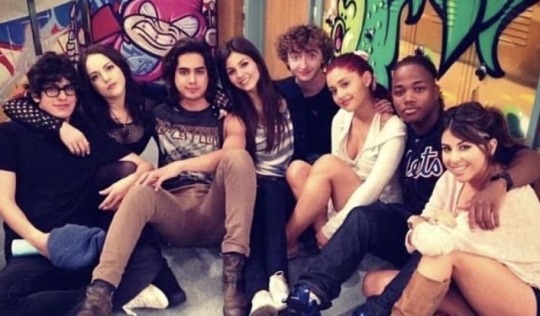

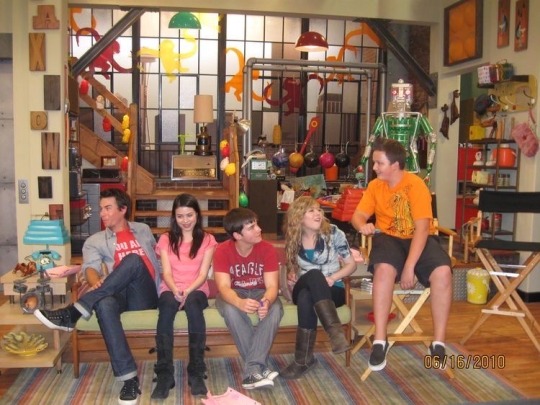




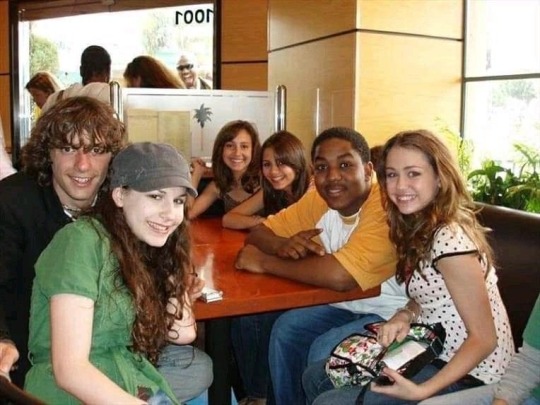

in honor of ‘Quiet on Set’ i hope they get their justice 💗
#2000s#nostalgia#90s#tv shows#amanda bynes#drake bell#josh peck#victorious#all that#early 2000s#late 90s#quiet on set#drake and josh#icarly#2010s internet#2010s#2000s tv#90s tv shows#nickelodeon#2000s nostalgia#y2k nostalgia#nostalgic#tv#tv series#amanda show#jennette mccurdy#miranda cosgrove#victoria justice#2010s nostalgia#early 2010s
543 notes
·
View notes
Text
I could say that ASOIAF is a very medieval lit story at heart and you’d be like, “well no shit Sherlock, tell me something I don’t know 🙄”.
And I’d say: “Ok bet. ASOIAF’s medieval core is best exemplified through Jon Snow and Bran Stark, two distinct yet mirrored iterations of one hero-knight whose origins can be traced to Percival and his magical quest. Both are Percival (and both are potentially the grail king) but one is as close a 1:1 copy as we can get (Jon) and the other is the Percival archetype completely flipped over its head before it even begins (Bran). Jon, by the author’s own admission, is the fantasy hero in the most traditional sense. He’s Percival who was inspired by the knights and left his mother’s castle to chase after chivalric glory (Jon III AGoT), only to find out that he has a massive misunderstanding of the knight’s purpose and honor (ACOK/ASOS arcs). No one told him of the ethical dilemmas involved with being a knight. No one told him that he could meet the fair maiden and either be completely incapable of helping her (Gilly) or help her, leave her, and be burdened by her death (Ygritte). No one told him how hard it would be to have his entire world view upended and upon going back to his fellow knights and saying ‘hey friends maybe we should all re-evaluate the system in which we operate and how it might be causing us to betray the vows we swore’ he’d be met with disdain. No one told him that, like Percival, he might look back to his mother’s home and see what has become of it (and his sister whom he left) and upon making the decision to go back to it he dies before he can even get his foot out of the gate. Percival made it back home and Jon might too, but where Percival still had his mother’s shirt to remind him of his boyhood Jon had to kill the boy because the fate of the world depended on it. Jon stumbles and rises, only to stumble again. But nonetheless, he gets to be a knight. But on the other hand, there’s poor Bran! He doesn’t even get to fail at being a knight in the first place because that storyline was fucking taken from him before he could realize his dream of leaving his mother’s home. Jon at least got his call to action. Bran’s dazzling dream of knighthood doesn’t even get off the ground (quite literally). He climbs, falls immediately, and once his eyes are awakened he realizes that he is now incapable of being Percival as he’d wish to be. There’s no battling evil knights. There’s no saving fair maidens. But then he’s visited by a wizened old man who’s like ‘hey Percival, you can never be a knight but I’ll teach you how to be a mighty wizard!’ And that would be cool and all….BUT BRAN WANTS TO BE A KNIGHT GODDAMNIT! When he auditioned for the medieval lit play, he picked up the Percival/Arthur script. Yet that’s not what he ultimately got when the cast list finally got out. Because who the fuck switched it out his hero-knight script for the Merlin one??! So now he has to try and figure out how to be a knight who’s actually a wizard, and it fucking sucks y’all.”
#I could also say that these two are versions of arthur -#jon is the arthur who actually gets to be the knight-king#he gets the magic sword and gets to do knight-king stuff#bran should’ve been as well#but then there was a hiccup when the screenwriter switched out the knight part for a wizard trope#so bran is going on the knight’s journey but as a wizard but like he hates it- he really hates it#when I say that jon and bran are fashioned to be the most obvious “main characters” in this story….☺️#jon snow#bran stark#asoiaf#valyrianscrolls#in my arthuriana feels again and today we’re talking about percival hehe#can you tell that I’ve been reading about percival and the holy grail? because I have and it’s great
94 notes
·
View notes
Text
Jon, could there be honor in a lie, if it were told for a . . . a good purpose?"
"It would depend on the lie and the purpose, I suppose." Jon looked at Sam.
ASOS, SAMWELL IV
Sam brings up the topic of lying because he is thinking of lying to his family that Gilly's son is his own, so Gilly and her baby will have a better life at Horn Hill.
It's a noble thought of his. But there is also dramatic irony that he asks Jon that question when we know that once Ned also lied about a baby being his own child when it wasn't the case ( aka Jon Snow).
I really can't predict how Jon is gonna react when he finds out that Ned isn't his biological father. He could be hurt or even angry that he hide the truth from him. But at the end of the day, I think he'll come to be at peace with it, because Ned told that lie all these years with the purpose of protecting Jon. And Jon can understand and respect that.
43 notes
·
View notes
Text


The Walt Disney Company had a Prime Time Emmys Party where they invited Disney TVA creators in honor of the studio's upcoming 40th anniversary.
Alongside The Walt Disney Company revealed the most prolific creators who currently are stewarding the future of the studio:
Dan Povenmire ("Phineas And Ferb", "Milo Murphy's Law", "Hamster & Gretel")
Jeff Swampy Marsh ("Phineas And Ferb", "Milo Murphy's Law", "Hey A.J.")
Bruce W Smith ("The Proud Family Movie", "The Proud Family: Louder And Prouder", "La Familia Avenúñez")
Ralph Farqhuar ("The Proud Family Movie", "The Proud Family: Louder And Prouder", "La Familia Avenúñez")
Noah Z. Jones ("Fish Hooks", "The 7D", "Pickle and Peanut", "NDA-Disney Channel Series")
Craig Gerber ("Sofia The First", "Elena Of Avalor", "Firebuds", "Sofia The First: Royal Magic")
Rob LaDuca ("The Lion King II: Simba's Pride, "TaleSpin", "Mickey Mouse Clubhouse", "Mickey Mouse Mixed-Up Adventures", "Mickey Mouse Clubhouse+")
Kim Duran ("Kim Possible", "Minnie's Bow Toons", "Mickey Mouse Mixed-Up Adventures", "Mickey Mouse Funhouse", "Mickey and Minnie's Once Upon A Christmas", "Mickey Saves Christmas", "Mickey and Friends: Trick or Treats", "Mickey Mouse Clubhouse+")
Aliki Theofilopoulos ("Phineas And Ferb", "Descendants: Wicked World", "Zombies : The Re-Animated Series")
Rachel McNevin ("Big City Greens", "Zombies : The Re-Animated Series")
Chris Houghton ("Gravity Falls", "Mickey Mouse (2013)", "Wander Over Yonder", "Big City Greens")
Shane Houghton ("Big City Greens")
Stevie Wermers-Skelton ("Monsters At Work", "Prep & Landing: The Snowball Protocol")
Kevin Denters ("Monsters At Work", "Prep & Landing: The Snowball Protocol")
Nic Smal ("Kiff", "NDA-Disney Channel Series")
Lucy Heavens ("Kiff", "NDA-Disney Channel Series")
Natasha Kline ("Star Vs. The Forces of Evil", "Big City Greens", "Primos")
Ryan Gillis ("Pickle And Peanut", "The Wonderful World of Mickey Mouse", "StuGo")
#Dan Povenmire#Jeff Swampy Marsh#Bruce W. Smith#Ralph Farqhuar#Noah Z. Jones#Craig Gerber#Rob LaDuca#Kim Duran#Aliki Theofilopoulos#Rachel McNevin#Chris Houghton#Shane Houghton#Stevie Wermers Skelton#Kevin Denters#Nic Smal#Lucy Heavens#Natasha Kline#Ryan Gillis#Disney Television Animation#Disney TVA#Disney TV Animation#DTVA#The Walt Disney Company#Phineas And Ferb#Big City Greens#Primos#Kiff#StuGo#Monsters At Work#Sofia The First
62 notes
·
View notes
Text
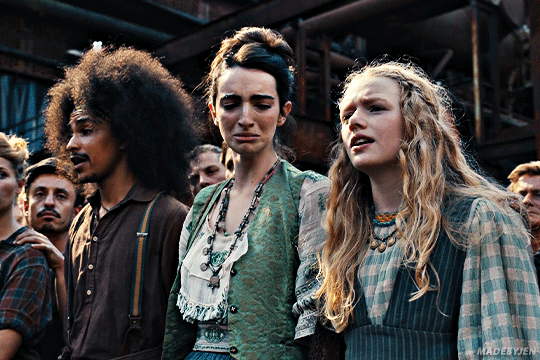
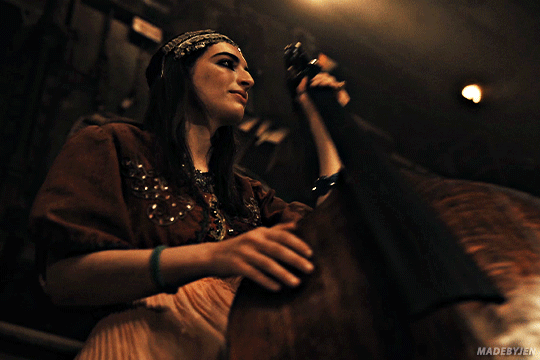
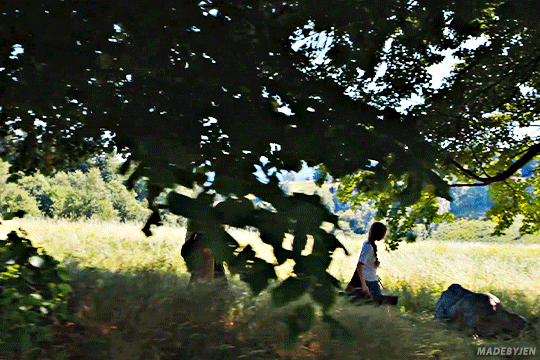
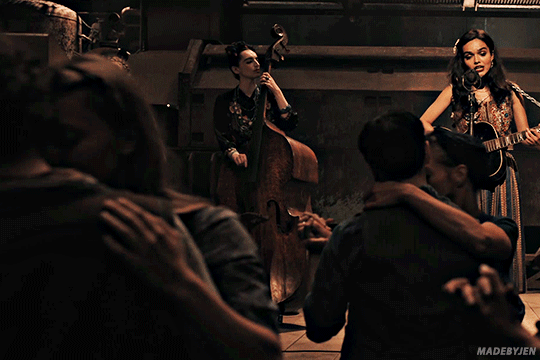

Honor Gillies as Barb Azure Baird The Ballad of Songbirds and Snakes
#barb azure baird#tbosasedit#tbosas#the ballad of songbirds and snakes#madebyjen#wlwsource#userbbelcher#usermorgan#usersar#nessa007#dailywlw#userpayel#usersadie#userwahine#usermalcfoy#rogerhealey
149 notes
·
View notes